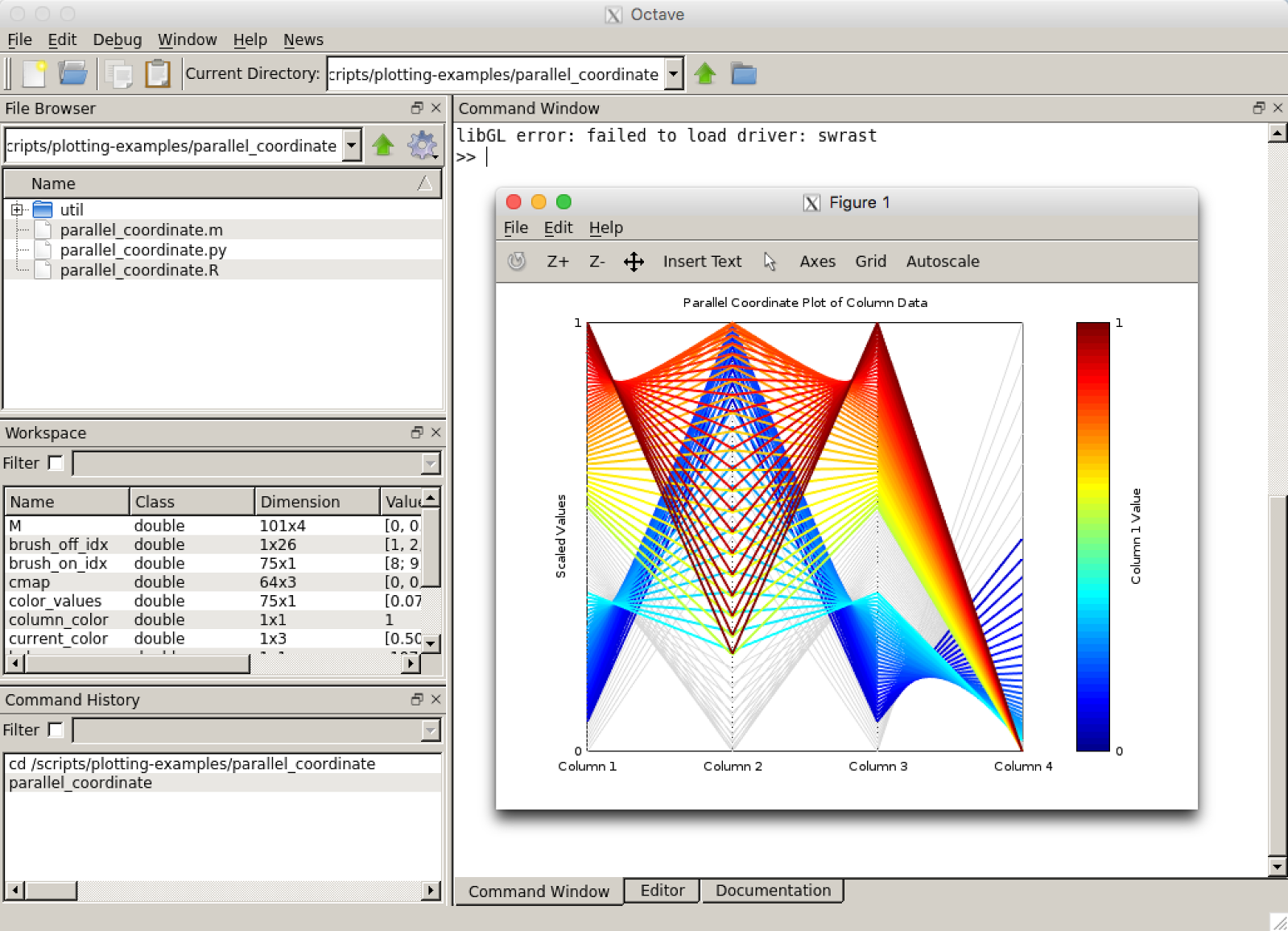

- #Is gnu octave safe code
- #Is gnu octave safe license
- #Is gnu octave safe free
- #Is gnu octave safe crack
Chapters 2 and 4 of the free "R for Data Science" book provide great examples of this. easier than any other environment I've used. The combination of ggplot2 and dplyr makes plotting, drill-down, aggregation, etc. R is, in my opinion, best-in-class for exploratory data analysis. Jupyter notebooks are a free option, but don't include all the features you'd have in a Matlab-style GUI. The best Matlab-like GUI is probably "Scientific mode" in P圜harm, which requires a paid license. "Zoom to different features" can be done via Pandas, or directly via NumPy, although the syntax can get a little cumbersome.

You can use matplotlib to create plots using an interface explicitly modeled on the Matlab interface, or use higher-level wrappers like Seaborn which reduce the amount of work required to create nice-looking plots of certain types. Octave includes a Qt-based GUI, but it is not nearly as polished as the Matlab GUI. All the Matlab plotting functions work, but the plots don't look as nice, and require more tweaking to get them to "publication quality". Octave is ok for that, but not as good as Matlab. It is incredibly well suited for implementing and rapid prototyping many kinds of numerical algorithms that take advantage of the ease of access to linear algebra operations. For example, Octave still has not migrated to SPQR from CSparse.Īll that said, Octave has provided us with an amazing, reliable tool. That said, we often need to do production runs in MATLAB because they tend to use more updated numerical libraries than Octave. Especially for reason (1), my clients also prefer to use Octave when possible.
#Is gnu octave safe license
Personally, I find Octave easier to work with than MATLAB when developing applications because (1) It avoids the often times broken license manager and starts faster and (2) Has a more reasonable, integrated connection to the machine C compiler for debugging mex files. For me, I own both a MATLAB license as well as use Octave.
#Is gnu octave safe code
Although Octave doesn't replicate Simulink, a good amount of code is still in MATLAB. I work with folks in electrical controls and there's still a fair amount of modeling in Simulink. The real relevance is MATLAB as an analysis tool with lots of MathWorks goodies. I worked at a place that used Octave to run a free MATLAB script that did some very complicated microeconomics: a lot of very smart professors have written many useful algorithms in MATLAB, so being able to run them without porting is nice.īut I think Python and R have, sadly, made MATLAB as a language mostly obsolete for future development.
#Is gnu octave safe crack
MATLAB code is unusually clear and expressive for numerical calculus and linear algebra, so are a good choice for problem domains where the math is very complicated but the dataset isn’t terribly large (e.g., models of crack formation in ceramics). Octave is a great option as a personal calculator, and be the best option for small mechanical/electrical engineering firms. In most cases I think Octave/MATLAB provide too little benefit and too many drawbacks. And nowadays they don’t have much performance benefit either. The languages also aren’t as nice as R for statistics and machine learning. The fundamental problem is MATLAB/Octave simply aren’t as useful as Python for real world stuff (a bit of syntactical awkwardness around linear algebra is worth painless web access and system IO). In practice it seems like Octave isn’t a great alternative to MATLAB in industry because so many industrial customers use proprietary MathWorks packages (eg Simulink) that are missing in Octave.


 0 kommentar(er)
0 kommentar(er)
